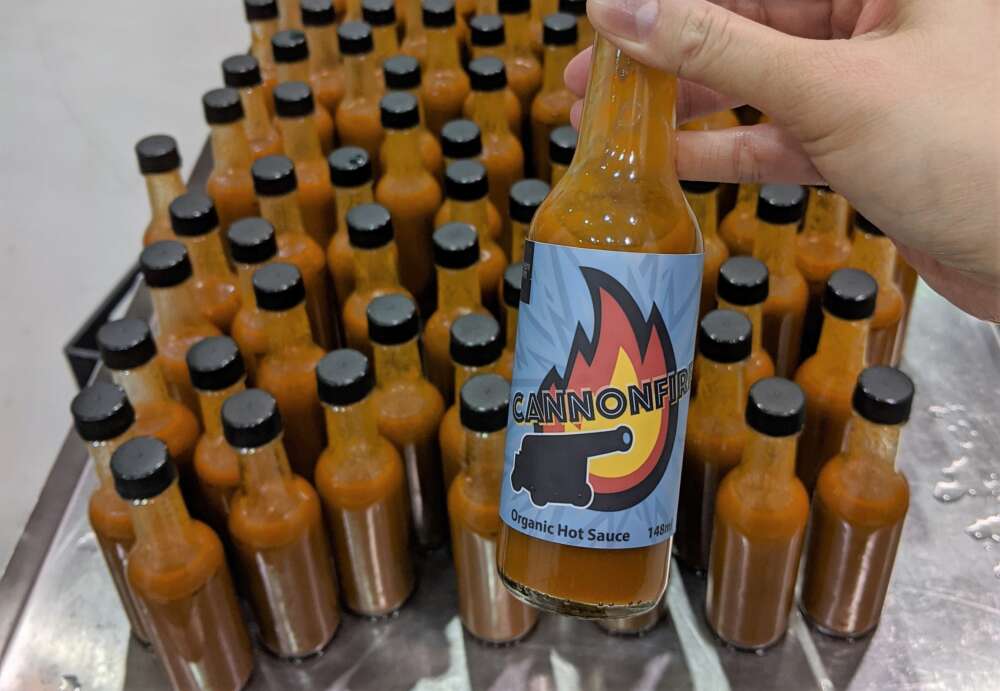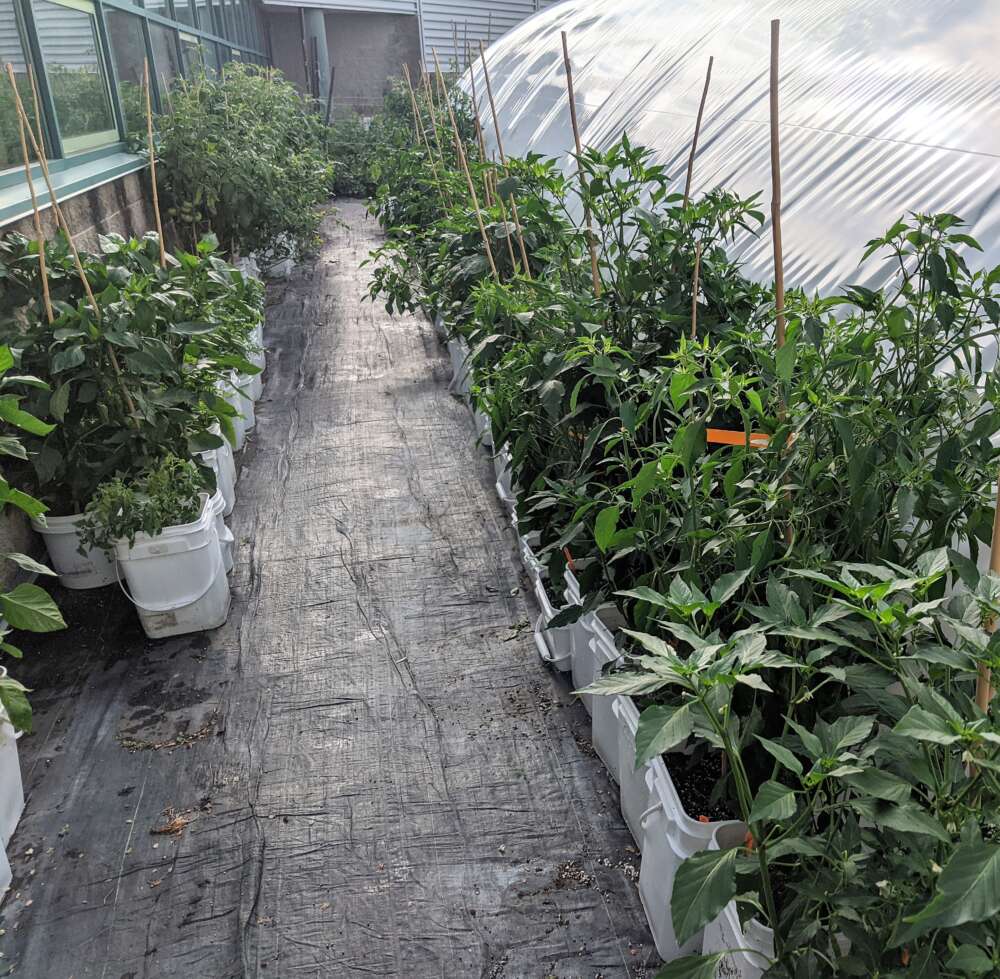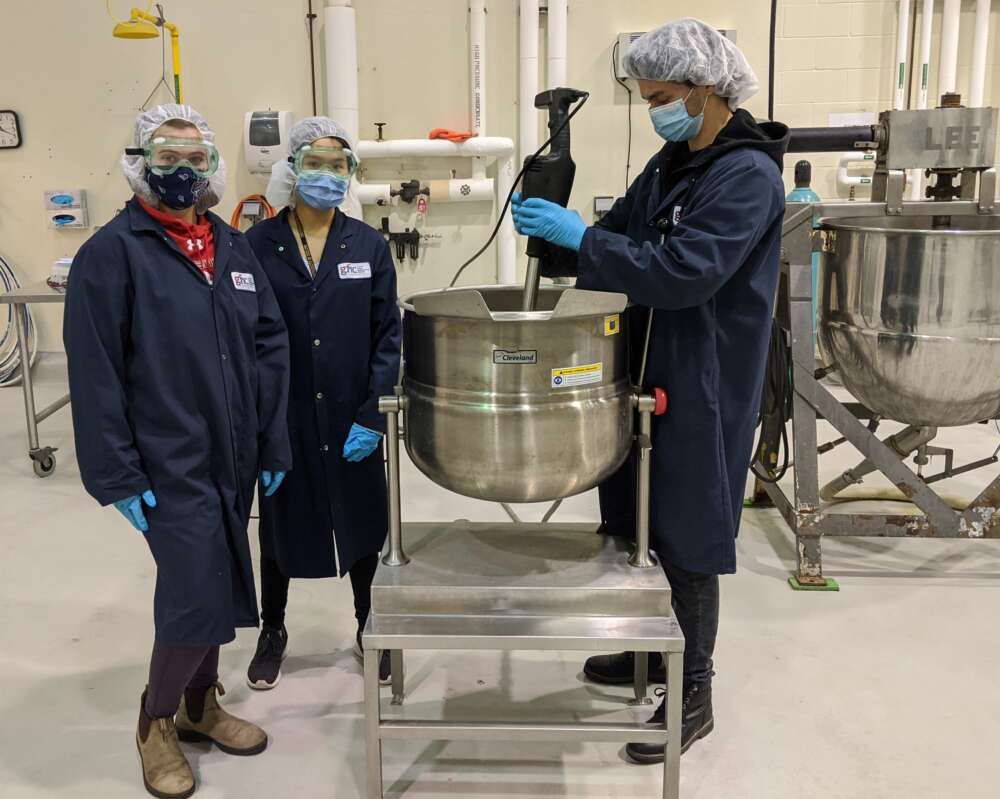 With the winter chill settling in, University of Guelph food science students are getting set to offer for sale a spicy organic hot sauce that they grew, perfected and bottled on campus.
With the winter chill settling in, University of Guelph food science students are getting set to offer for sale a spicy organic hot sauce that they grew, perfected and bottled on campus.
The sauce results from a nearly year-long volunteer project designed to give students the chance to bring to market a fully student-created food product.
A blend of jalapenos, habaneros and other spicy peppers, the new hot sauce has been dubbed Cannon Fire, a name that offers a nod to a beloved U of G landmark: the naval gun on campus known as Old Jeremiah.
“Cannon Fire is a really good sauce,” said Nathalie Hua, a third-year food science co-op student who led this year’s project. “It’s pretty hot, but also sweet and a little sour. I’ve used it on my quesadillas and fries and it definitely has a bite.”
Every pepper in the sauce was grown organically on campus, hand-picked, seeded and chopped by students, and then processed and bottled at the Guelph Food Innovation Centre (GFIC).
GFIC director Derek Vella launched the hot sauce project in 2018. The goal, he said, was to offer undergraduate food science students hands-on learning in food production outside of the classroom and lab.

“The project is completely volunteer-run; there’s no academic credit for this,” he said. “What students do get is a chance to manage every aspect of a food product they develop themselves — from the seed selection, growing the peppers, recipe refinement, food safety, labelling and manufacturing.”
The hot sauce project went so well last year, the teams decided to double production this year and create what Vella called “a true, student-made, seed-to-shelf project.”
“Last year, we bought peppers from the Guelph Centre for Urban Organic Farming. When we started planning in the winter for this year, we wanted to up the ante and grow the peppers ourselves,” he said.
“Of course, that sounded like a great idea in February, when we started planting seedlings. Then COVID-19 hit.”
The pandemic meant rethinking plans to have 20 student volunteers take part in the project.
U of G Hospitality and Bovey greenhouse staff stepped in to help a handful of co-op students water the seedlings. As the summer ended, Hua and GFIC co-op students took on the job of harvesting, de-seeding and freezing the peppers.
Finally, this month came the bottling. Two GFIC co-op students and one student volunteer took part in production day, mixing and bottling the sauce in the GFIC pilot plant following proper physical distancing protocols.
The result was more than 100 bottles of Cannon Fire, all of which will go on sale this week.

Despite the challenges of this pandemic year, Hua is grateful to have been part of the project — particularly since she dreams of becoming a food product developer after graduation.
“I learned a lot about what it’s like to manage my first big food project with a staff of volunteers,” she said. “It was really cool to see something develop from the ground up and to be able to say, ‘I was responsible for that.’”
Vella hopes to develop the project further next year and develop two sauces: one “classic” Cannon Fire, whose recipe will remain mostly the same; and one new “limited edition” sauce that could get switched up every year.
“We want the annual sauces to bring students together to experiment and have fun with different flavours and experience the entire process of product development,” said Hua.
Cannon Fire will go on sale this week for $10 per bottle, with all proceeds going to future hot sauce projects and other food science student activities.
UPDATE: Cannon Fire is now sold out.
Contact:
Derek Vella, GFIC director
dvella@uoguelph.ca
Nathalie Hua
nhua@uoguelph.ca